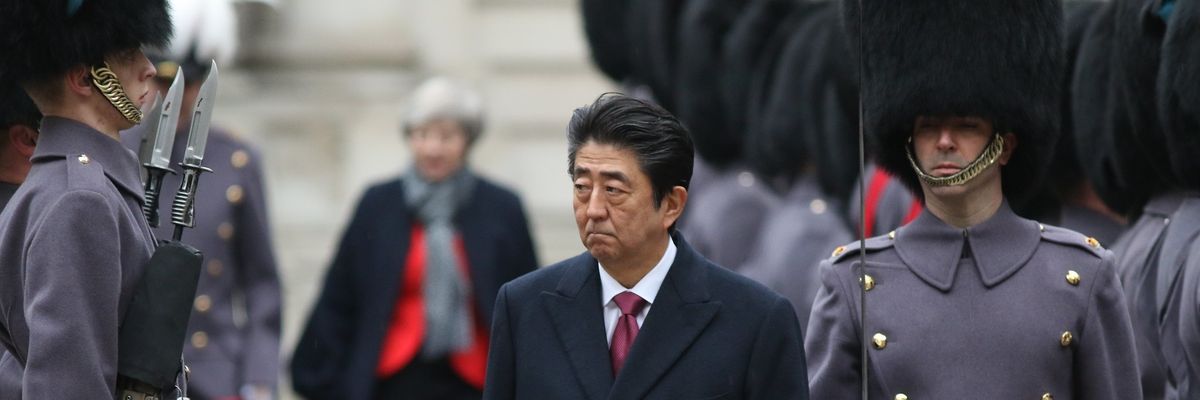The assassination of former Prime Minister Shinzo Abe comes as a tragic shock to a largely violence-free Japan. In the coming weeks, there will be much soul-searching in the nation as to whether this criminal act was an aberration or an early sign of a shift toward a more contentious domestic political culture.
But the horrific murder of a senior politician while participating in one of the most democratic of rituals that Americans can identify with — vigorous election campaigning — should not to obscure Abe’s decidedly problematic legacy when it comes to the Asian order.
Abe flirted with historical revisionism when it came to Japan’s crimes during World War II. In an infamous 2015 speech, he appeared to have walked back from Japan’s clear 1995 statement of apology for those crimes by the then-Prime Minister Tomiichi Murayama.
“We must not let our children, grandchildren, and even further generations to come, who have nothing to do with the war, be predestined to apologise. Even so, we Japanese, across generations, must squarely face history. We have a responsibility to inherit the past, in all humbleness, and pass it on to the future.” (Abe)
“During a certain period in the not too distant past, Japan, following a mistaken national policy, advanced along the road to war, only to ensnare the Japanese people in a fateful crisis, and, through its colonial rule and aggression, caused tremendous damage and suffering to the people of many countries, particularly to those of Asian nations.” (Murayama)
Abe’s statement was flayed by both China and South Korea, and did not help bridge divides on the issue in Asia.
With China in mind, Abe also pushed hard for a more militarist Japanese constitution. The push failed in formal terms. But Abe’s imprint on Japan’s defense policy remains strong, with current Prime Minister Kishida committing to a much greater level of defense spending and the pursuit of a “counterstrike capability.”
A shift in the Japanese defense stance was probably inevitable given Beijing’s meteoric rise and intrusive activities in its neighborhood. Enhanced Japanese security ties with China-wary Asian states such as Vietnam may also be rational responses to shifts in power in the region. But the question remains as to whether Japan, given its historical shadow and considering the danger of an escalatory regional spiral, should pursue an offensive strategy that implicitly includes direct involvement in a Taiwan contingency or retain a defensive approach to dealing with regional challenges.
Abe also is widely seen as the father of the concept of the “Indo-Pacific” and its associated Quadrilateral Security Dialogue, or the Quad — a China-countering group that also includes the United States, Australia, and India. In a seminal speech in New Delhi in 2007, Abe cited a 17th century Mughal prince and spoke of the “confluence of two seas,” namely the Indian and Pacific oceans.
Such a construction has a certain logic in terms of trade and connectivity as Asian economies from China to India to ASEAN states continue to rise. But the “Indo-Pacific” has taken on more ominous contours of a China-exclusion bloc, with the Quad (including de facto military activities) and the AUKUS groupings. The latter (of which Japan is not a part, but has shown keen interest in cooperating with) is an unabashedly military pact, even involving an extra-regional power — the United Kingdom. Incipient bloc formation only adds to the gathering cold war in Asia, in which there is much deterrence in play, but very little reassurance.
Mired in scandals and accused of mismanaging the early stages of the Covid pandemic, Abe ultimately resigned in late 2020 citing health reasons. His legacy will be that of a forceful, influential, and hawkish Asian leader.
















